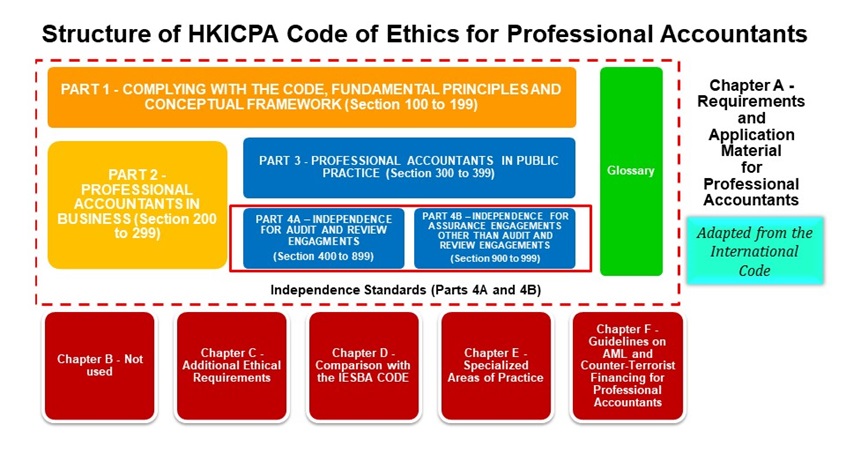Code of Ethics for Professional Accountants
|
||||||||||||||||||||||||
Revisions to the Code Addressing Tax Planning and Related Services (Effective Date: 1 July 2025) |
|---|
|
The Institute
IESBA
|
Technology-related Revisions to the Code (Effective Date: 15 December 2024) |
|---|
|
The Institute
IESBA
Others
|
Revisions to the Code Relating to the Definition of Engagement Team and Group Audit(Effective Date: 15 December 2023) |
|---|
|
The Institute
IESBA
|
Revised Non-Assurance Services and Fee-related Provisions of the Code (Effective Date: 15 December 2022) |
|---|
|
The Institute
IESBA
|
Revisions to the Code to Promote the Role and Mindset Expected of Professional Accountants (Effective Date: 31 December 2021) |
|---|
|
The Institute
IESBA
|
Long Association of Personnel with an Audit Client (Effective Date: 15 December 2018) |
|---|
|
IESBA
|
Responding to Non-Compliance with Laws and Regulations (Effective Date: 15 July 2017) |
|---|
|
The Institute
IESBA
|
COVID-19 Related Guidance |
|---|
| IESBA
Others |
Last updated: December 2025








